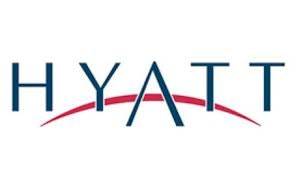As the U.S. economy improves, both personal travelers and corporate travelers are returning to the road with a little more money to spend. The lodging industry has begun to see considerable improvement as a result, with many chains reporting pre-recession earnings.
A TripAdvisor survey revealed 42% of U.S. travelers are planning to increase travel spending this year, and 79% of U.S. hoteliers are optimistic about increased profit this year.
However, all hotels are not seeing these positive indicators reflected in their earnings. Here is one hotel to avoid, one to be cautious about, and two to hold on to for the long run.
A mint on the pillow won’t make up for these earnings
Hyatt Hotels Corporation (NYSE:H) reported a 20% decrease in net income, a 2.5% decrease in revenue, and that earnings per share took a 55% nosedive in the first quarter of 2013. If everyone else is doing well, why isn’t Hyatt? Let’s take a closer look at the numbers.
Hyatt Hotels Corporation (NYSE:H) reported first-quarter 2013 net income was $8 million, down 20% from $10 million the year previous, and down 50% from the fourth quarter of 2012.
However, while net income decreased sharply, revenue actually increased 2%, reaching $975 million for the quarter in comparison to $958 million in the 2012 quarter. But revenue decreased 2.5% from $1 billion in the fourth quarter of 2012.
Comparable owned and leased hotel revenue per available room (RevPAR) increased 4.5%. Comparable system-wide RevPAR increased 2.4%. Comparable U.S. full-service hotel RevPAR increased 2.7% in the first quarter of 2013 compared to the first quarter of 2012.
Hyatt reported a 55% decrease in earnings per share from the previous quarter, while the competitors posted much higher returns – 21% at Starwood Hotels & Resorts Worldwide, Inc (NYSE:HOT), 42% at Marriott, and 14% at Host Hotels. So what went wrong at Hyatt? Why isn’t this hotelier keeping up with the competition?
Blame it on the government
CEO Marc Hoplamazian attributed transient room revenue to a combination of demand and rate. He also cited factors such as major property renovations and cancelled business, specifically from the government. He said government-related group demand was particularly weak due to sequestration, down 50% in the quarter compared to 2012. However, the government only comprises 2% of business, according to a Hyatt Hotels Corporation (NYSE:H) employee union. If this were true, these issues would have been reflected in the earnings of the other hotel companies, and not just one chain.
In fact, Starwood Hotels & Resorts Worldwide, Inc (NYSE:HOT) CFO Vasant Prabhu said that although government business was down during the quarter, “it is less than 2% of our company-operated North American business. In many cases, we’ve been able to replace it with higher-rated corporate customers.”
What Hoplamazian did not mention was that Hyatt Hotels Corporation (NYSE:H) is the only hotel company with a long-running labor dispute and system-wide boycott by its largest union. More than 3,000 individuals and organizations have signed on to the boycott and have removed their business. Whether the company admits it or not, this boycott appears to be taking its toll on profits.


